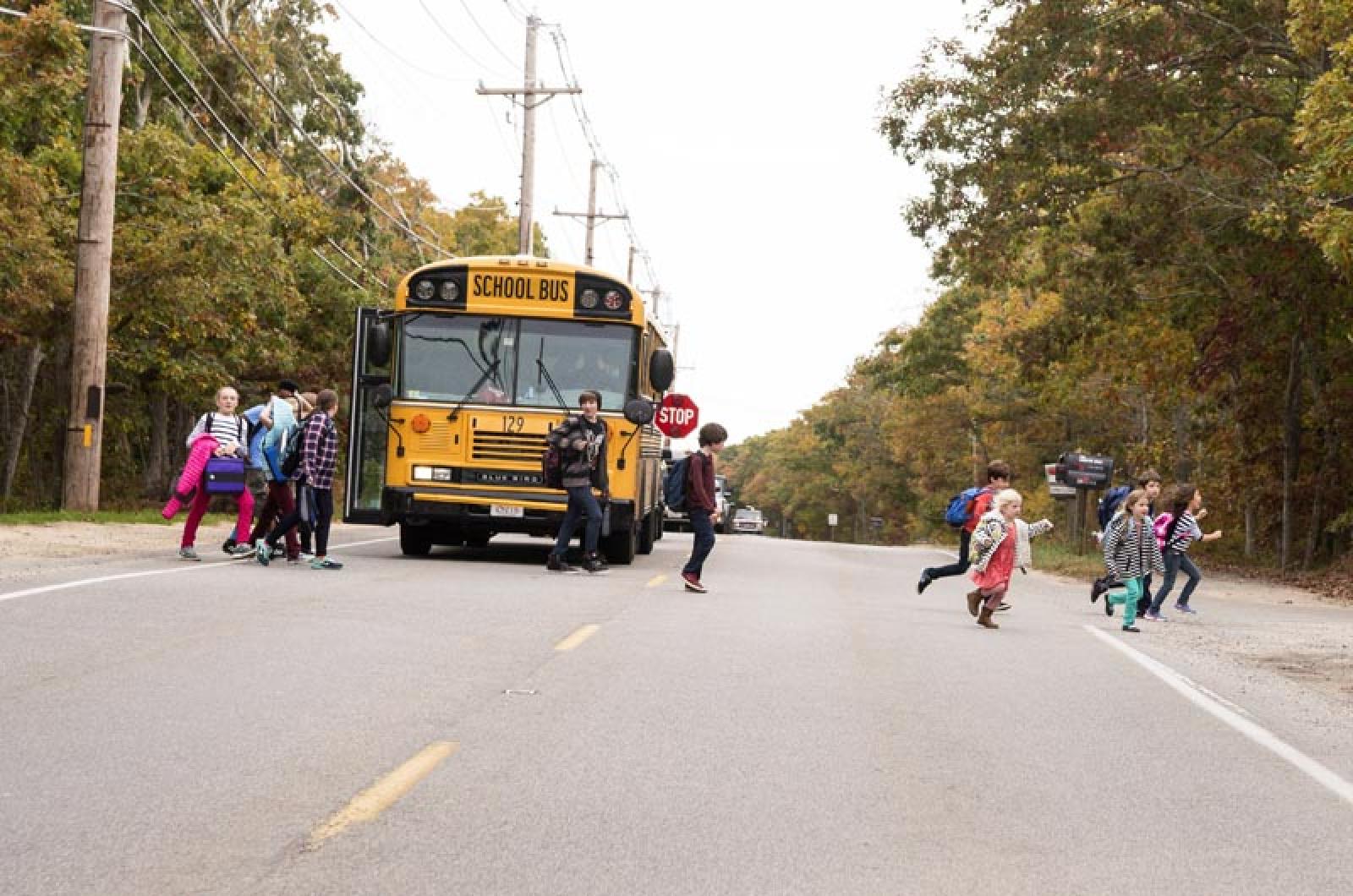School bus drivers on the Vineyard have reached a tentative agreement on a contract that includes seniority benefits, a new payment system based on the number of runs and hours worked, and other provisions.
Members of the regional high school district committee are still negotiating final terms with the drivers, who have expressed an interest in unionizing.
“I feel now that I have a grasp of where we are in the transportation department, that we are working within our means,” superintendent of schools Dr. Matthew D’Andrea said at a recent high school committee meeting. “The drivers got some things like sick days and longevity and seniority that they were looking for, so it’s a win-win situation.”
The draft contract is the first of its kind for bus drivers and would cover all school bus drivers for the district, including elementary schools. There are about 30 bus drivers and 10 bus monitors. If the contract is approved, it will take effect on the first day of school.
Negotiations at the school began last year when members of the transportation department approached Mr. D’Andrea and assistant superintendent Richie Smith with a desire to unionize. A department advisory group met regularly with school officials, who were concerned in part about an overrun in the transportation budget that year.
The agreement was worked out independently of a union, but Mr. D’Andrea said at the meeting that bus drivers can still vote to join a union if they want to.
The agreement includes plans to develop a seniority list for field trips and sports runs, provisions for longevity pay, and a return to an earlier payment system based on runs rather than hours worked for large buses. Hourly pay for special education runs will drop from $30 to $25, with an agreement that the school committee would work to restore the $30 rate in three years.
The agreement also outlines the use of sick days, which were new last year (drivers get five per year and can accumulate up to 25), and documents policies related to physical exams, non-discrimination, license reimbursements and training, among other provisions.
Concerns at the meeting focused on issues surrounding seniority and compensation, with committee member Jeffrey (Skipper) Manter arguing that seniority benefits would disadvantage junior drivers, especially in light of the new payment system.
“If you take out [the hourly pay], there is no fairness to the other bus drivers,” he said, arguing that senior drivers would snatch up all the best runs.
But Mr. Smith said meetings with the advisory group, which included department members chosen by the drivers themselves, have already addressed those concerns, including how seniority would affect morale within the department.
Committee member Amy Tierney pressed for ways to insure that the most appropriate drivers are assigned to special-education runs. “I’d like all people driving school buses to have some awareness of kids with special needs, but particularly the special-ed buses,” she said. Mr. D’Andrea said that even with senior drivers getting first pick, extra runs for special education buses would still be available for drivers.
In the end, Mr. Manter opposed the agreement, arguing instead for maintaining hourly pay and finding other ways to lower the budget. He noted that even with a payment system based on the number of runs, the school would need to keep track of hours, since drivers must work an average of at least 20 hours per week to qualify for benefits.
The committee agreed to a number of revisions in the agreement, including options for assigning specific drivers for some runs, a three-year time frame, and provisions for reopening negotiations surrounding various issues in the future.
Committee member Kris O’Brien thanked everyone involved in drafting the agreement, which she said will return for approval once it is amended. The committee’s next meeting is scheduled for Thursday, August 24 at 4:30 p.m.







Comments
Comment policy »